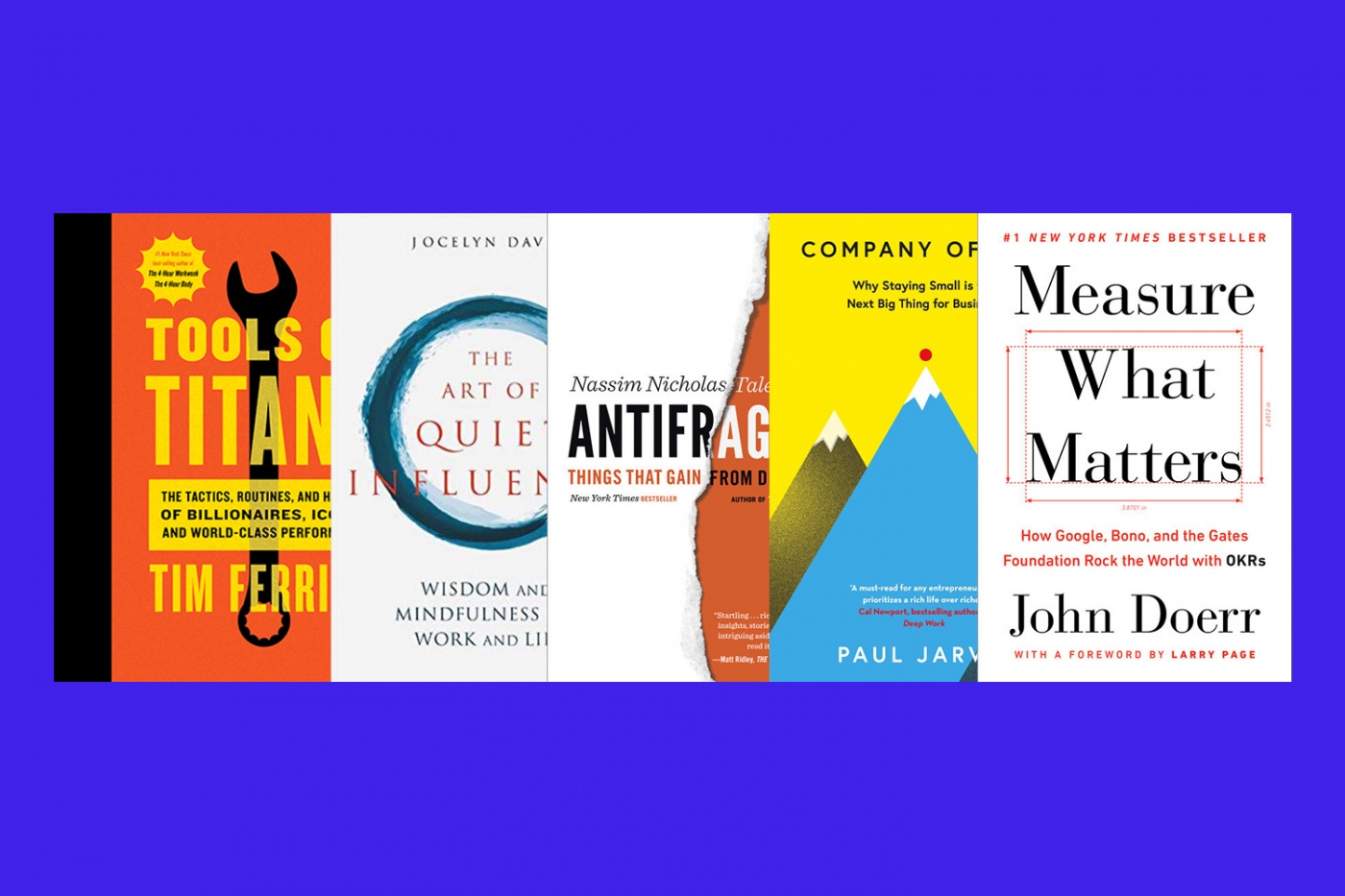5 Must-Read Books to Get Ahead in Business
If you want to lead, you must read. After all, knowledge is power and books offer us an insight into new perspectives as well as a deeper understanding of things. Ever wonder how people get to the top in their field? They all have a common habit of reading voraciously to strengthen their minds, slow down cognitive degeneration and increase their capacity for empathy. However, the types of books you choose vary in stimulating and expanding your mind. Anyone can learn to be a better leader—here are five books that can help you think differently.
Tools of Titans, by Tim Ferriss
By interviewing over two hundred prominent figures like Jamie Foxx, Arnold Schwarzenegger and even Special Operations commanders, American author and public speaker Timothy Ferriss is able to distil the tools of the trade from the world’s top icons, innovators and billionaires.
This compendium reveals techniques and strategies (employed by his guests) to achieve success in life, such as what they do every morning, their workout routines and the biggest time-wasters. Ferriss himself has used many of these teachings in risky negotiations and important business dealings to a great degree of success. “The lessons have made me millions of dollars and saved me years of wasted effort and frustration,” he said. If you are looking for tips to add to your playbook, look no further.
Company of One: Why Staying Small is the Next Big Thing for Business, by Paul Jarvis
Author Paul Jarvis left the corporate world when decided that working in a stressful and demanding job was not his cup of tea. He chose a radical approach towards entrepreneurship, one which focused on maximising happiness, sustainability, profitability while staying small. In his journey, he discovered that he was much happier, choosing a “rich” life not bound by material things. In his book, he tells his readers that they can be equally productive and get their “desired revenue” by striking out on their own. The key to success is not about making your company bigger, but to make it better. Therefore, think carefully about your core values and make sure your business is centred around them.
The Art of Quiet Influence: Timeless Wisdom for Leading Without Authority, by Jocelyn Davis
Any leader would know that using force isn’t always the most desirable way of getting people to listen to them. Your choice of words and tone alone can, in fact, yield a similar outcome. With twelve specific practices, coupled with many riveting anecdotes and examples, The Art of Quiet Influence shows us that anyone can be a quiet yet powerful influencer. The book also draws from the timeless wisdom of Buddha and philosophers like Rumi to demonstrate to readers how one can create greater trust-based collaborations that have more impact than short-term persuasion.
Measure What Matters: OKRs: The Simple Idea that Drives 10x Growth, by John Doerr
Bill Gates recommends this book to anyone who’s interested in becoming a better manager, as it is a comprehensive guide to goal-setting and making difficult business choices. Even former Vice President Al Gore calls it a “must-read for anyone motivated to improve their organisation.” Venture capitalist John Doerr provides a rundown of how he used the Objectives and Key Results (OKR) system to help tech giants like Intel, Google and Amazon reach unprecedented levels of growth. The OKR model teaches you how to collect critical data to chart your company’s progress and helps you to define our goals clearly. Whether your company is small or large, you will have the ability to transform your approach towards goal-setting for yourself and your team.
Antifragile by Nicholas Nassim Taleb
In this book, former trader Nicholas Nassim Taleb talks about how our current interpretation of reality makes us particularly susceptible to the changing market forces. Taleb groups people into three categories: the fragile, the robust and the antifragile. If you are fragile, you will avoid chaos, for fear of getting hurt, but this strategy only makes yourself more vulnerable to future disruptions. In order to become stronger, one has to embrace challenges. The truth is, our brains are not naturally programmed to survive in this complex, modern society— but we can train ourselves to.
While the book mainly spotlights the business and economic world, Taleb’s compelling philosophies can be applied to various aspects of our life. Whether you are a leader or an employee, Taleb will demonstrate how uncertainty is not something undesirable, but necessary in order for things to become “antifragile.”


